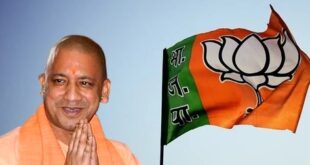Dr. Subhasis Ray & Dr. Bhaskar Basu
Another T20 World Cup tournament is knocking at our door. But have we learnt from our debacle in the last World Cup (i.e. T20I WC held in 2021 in UAE)? Our hearts think so, but heads don’t. India’s fate was decided quite early in the last T20I WC, precisely after its first couple of matches against Pakistan and New Zealand. The similarity is uncanny this time around too as India will face its arch rival Pakistan in the opening match and the loser will straightaway be under pressure to qualify for the next round.
When India lost the World Test Cricket Championship final (2021) against New Zealand, the main reason cited was the lack of acclimatization in UK due to lack of practice matches. For the last T20I WC, all Indian players were camping in UAE since the last one and half months due to IPL. Before the marquee event, it was deemed to be a masterstroke by BCCI to conduct the remaining part of the IPL and thereafter, the World Cup (originally scheduled in India) in UAE due to the not so conducive situation prevailing in India. It was argued that Indian players would get accustomed to both the format and the pitch conditions and will hold an edge over other teams in the ICC tournament.

However, after the T20I WC 2021 debacle, the excuse provided was that the team was mentally fatigued due to the bio-bubbles and hence looked jaded in the tournament. After almost a year’s hiatus, one would expect a lot of enthusiasm from the professional players. Team selection, fitness issues and bad luck with the toss were the other reasons ascribed for the early exit. While toss of the coin is an uncontrollable factor, we can surely look at the controllable factors to not repeat the same mistakes going into yet another ICC cricket tournament. For the ensuing WC, the team India has reached Australia more than two weeks in advance. With four practice matches, hopefully, the team will be neither jaded nor lowly acclimatized.
The support team squad comprising head coach, batting coach, bowling coach, mental conditioning coach, video analyst and medical staff is almost equal to the playing squad. Despite this, the fitness has been an increasingly serious cause of concern. Jadeja came back from injury recently for the Asia Cup only to be sidelined for the World Cup.
Bumrah was probably rushed into the Indian squad to play Australia and is now ruled out for the World Cup. Hooda gave a scare, but has finally travelled to Australia. Fitness routines and injury management should be better considering the advances in technology and personalized gadgets available today.
Going into this big ticket tournament with unfit players can be suicidal as the Indians had realized with Hardik and Varun last time. With Jadeja, Deepak and Bumrah ruled out of the T20I WC 2022, the bowling especially the pace department looks vulnerable. With the selection of error prone Bhubaneshwar in the squad and dilly dallying with Siraj, Shami and Shardul as possible Bumrah’s replacement, the question naturally comes to our mind – ‘do we really have the problem of plenty’, as often the management makes us to believe.
Composition of the team is another concern this time around too. Majority of the players pick themselves and it is the last 3-4 players who are the subject for debate. There was a time around 2002, when there was no specialist Indian wicketkeeper who could supposedly wield the bat; so, Rahul Dravid was made a make-shift wicketkeeper.
Now the scenario in India is completely reversed; supposedly wicketkeepers are now better batsmen than the pure ones! In the recent past, the Indian team had 4 wicketkeepers in its squad (Dhoni, Karthik, Rishabh and Rahul in ICC ODI WC 2019) and 3 wicketkeepers (Ishan, Rishabh and Rahul in last year’s T20I WC 2021).
This time, the scenario is not much different with Karthik, Rishabh and Rahul in the team. This affects the balance of the squad as you are having a bowler or a batsman short in the squad, should you seek to replace anyone due to injury or poor form; it leads to the same question of having the ‘problem of plenty’. Besides, aren’t there any differences in the fielding drills for wicketkeeper and the outfielders in this era of specialists?
The standard of IPL is rated very high (with respect to skill, innovation, competitiveness) by cricket players, experts, administrators and media. So, one would expect players with exceptional show in IPL to be selected by BCCI for the marquee ICC T20 tournament. This time Chahal, Hooda, Harshal and Arshdeep have been rewarded for their impressive IPL performance in India unlike last time when stupendous performances of Harshal and Venkatesh were ignored. However, injury and fitness issues are not letting this India team settle with the final-11 plus 4-reserves, although the lead up to the tournament has been good in terms of scheduling preparatory competitive T20 matches.
Besides, the selection of four spinners and four fast bowlers for a tournament to be held in pace friendly pitches of Australia seems a bit flawed notwithstanding Hardik’s presence as the only pace bowling all-rounder. The other area of concern seems to be the fielding looking at the recent T20 matches involving India. Nearly a catch being missed every game along with a couple of misfields on an average. In a tight game, a dropped catch or an extra run can decide the fate of the match. The only silver lining has been the return of form for Kohli and Rahul finding his mojo after an injury break.
Ultimately, it is the skill of the playing eleven that wins you a game and not 140 crores of support base or financial power or hosting the most lucrative IPL. It’s time for hope as well as apprehension. With Rahul Dravid at the helm, one can expect a lot of stress on skill. While this Indian team aspires to throw the playing conditions (pitch, weather, manufacturer of the ball, toss etc.) out of the equation, it is time to walk the talk. We think this is the right time for introspection and action since the coffers have long been empty since 2013 in this India’s most popular game.
Dr. Subhasis Ray is a management consultant and a member of the faculty of business analytics, IISWBM, Calcutta;
Dr. Bhaskar Basu is a Professor in Information Systems, Xavier Institute of Management – XIM University
 Jubilee Post News & Views
Jubilee Post News & Views





